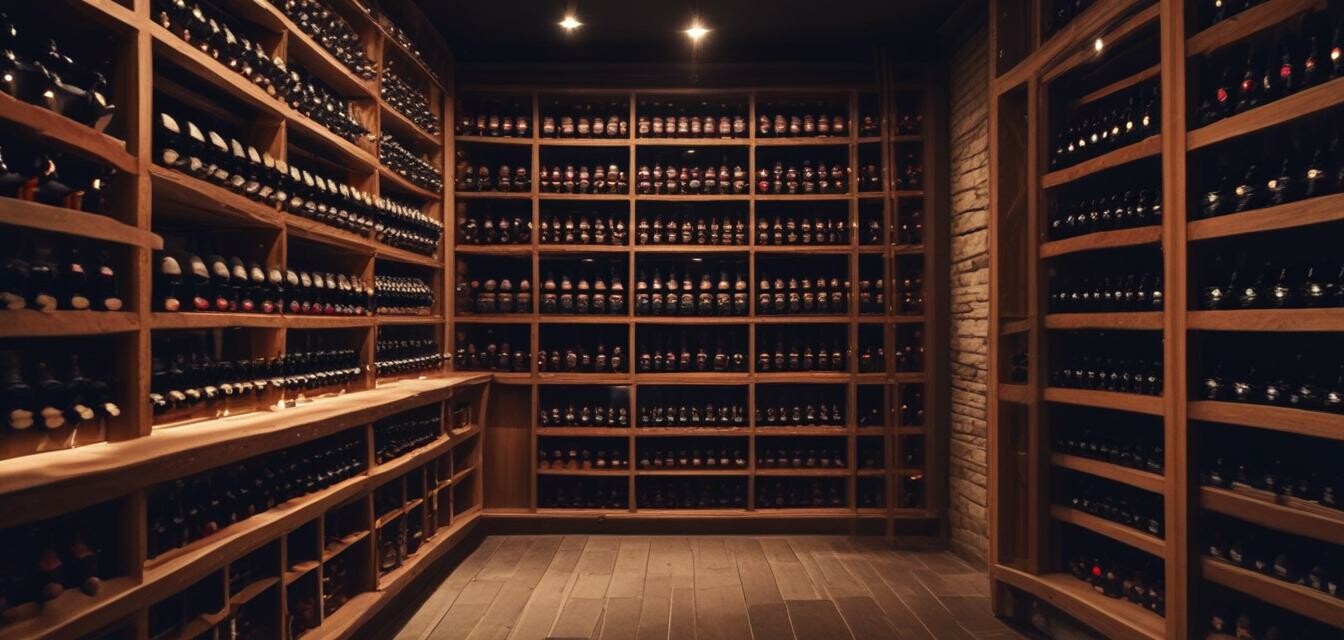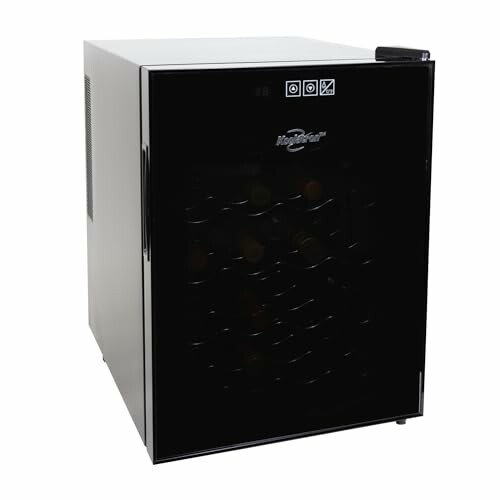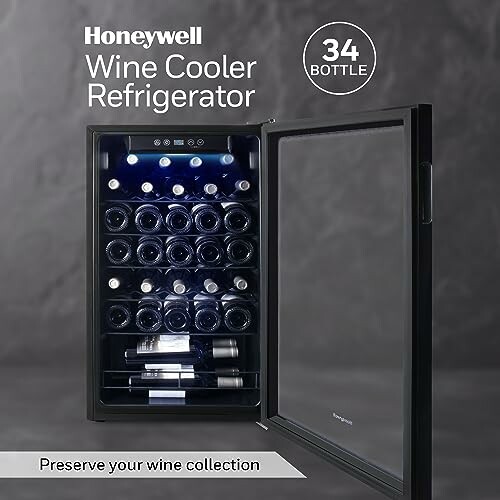
Essential tips for storing wine in different types of wine cellars
Key Takeaways
- Maintain a stable temperature between 45°F and 65°F.
- Ensure humidity levels of around 60%-70% to prevent cork drying.
- Store wine bottles horizontally to keep corks moist.
- Avoid direct sunlight exposure to prevent wine spoilage.
- Choose wine cellars based on size and accessibility for your collection.
Proper wine storage is essential for preserving the quality and taste of your favorite bottles. Different types of wine cellars offer unique benefits and considerations. Whether you're a casual enthusiast or a devoted collector, understanding how to store wine effectively can enhance your wine-drinking experience. Let's delve into essential tips for storing wine in different types of wine cellars.
Understanding the Importance of Proper Wine Storage
Storing wine correctly helps to maintain its flavor, aroma, and longevity. Below are several factors that impact how well your wine ages:
- Temperature: Wine should be kept in a climate-controlled environment, ideally between 45°F (7°C) and 65°F (18°C).
- Humidity: Ideal humidity levels should be between 60% and 70% to prevent cork damage.
- Light: UV rays can degrade the wine; thus, cellars should be dark.
- Vibration: Wines should be kept in a vibration-free environment to ensure proper aging.
Types of Wine Cellars
There are various types of wine cellars, each catering to different storage needs:
| Type of Cellar | Description | Recommended For |
|---|---|---|
| Traditional Wine Cellar | Built specifically for wine storage with climate control and adequate insulation. | Serious collectors with extensive collections. |
| Wine Cooler | A compact fridge-like unit designed for wine storage. | Casual drinkers or those with limited space. |
| Wine Rack | A basic storage option providing horizontal bottle positioning. | Beginners looking for affordable storage solutions. |
| Under-Counter Cellar | Built-in systems designed to fit beneath countertops. | Those looking to save space while maintaining easy access. |
Best Practices for Storing Wine
Regardless of the cellar type chosen, certain best practices apply:
- Maintain Consistent Temperature: Fluctuating temperatures can spoil delicate wines, so aim for consistency.
- Control Humidity: Use a humidifier or dehumidifier to maintain ideal humidity levels.
- Store Bottles Horizontally: This keeps the cork moist and prevents it from drying out.
- Avoid Direct Sunlight: Light can damage wine and affect aging; opt for dark storage spaces instead.
- Keep Vibration Minimal: Avoid locations with heavy foot traffic or machinery.
Choosing the Right Wine Cooler
If you're considering a wine cooler, here are some aspects to keep in mind:
Tips for Choosing a Wine Cooler
- Capacity: Assess your collection size to determine how many bottles you'll need to store.
- Cooling Technology: Look for thermoelectric or compressor cooling systems based on your needs.
- Cooling Range: Ensure the cooler maintains a suitable range for different types of wine.
- Design: Choose a design that complements your space while providing functionality.
Featured Product: Koolatron 20 Bottle Wine Cooler
Koolatron 20 Bottle Wine Cooler
This freestanding wine fridge features a premium thermoelectric cooling system and adjustable shelves suitable for storing up to 20 bottles. A perfect choice for limited spaces.
Learn MoreHandling Different Wine Types
Different wines have varying storage requirements. Here’s how to handle some popular types:
| Wine Type | Optimal Temperature (°F) | Storage Duration |
|---|---|---|
| Red Wine | 55°F - 65°F | Up to 10 years |
| White Wine | 45°F - 50°F | Up to 5 years |
| Sparkling Wine | 40°F - 50°F | Up to 3 years |
| Dessert Wine | 50°F - 55°F | Up to 10 years |
Another Recommended Product: Honeywell 34 Bottle Compressor Wine Cooler
Honeywell 34 Bottle Compressor Wine Cooler
This freestanding wine cellar holds up to 34 bottles with adjustable digital temperature control, providing flexibility for any wine variety.
Learn MoreMaintaining Your Wine Cellar
Regular maintenance of your wine cellar ensures longevity and optimal function:
- Clean the interior and shelves regularly to prevent dust buildup.
- Check temperature and humidity levels to ensure they remain stable.
- Inspect the seals on doors to prevent air leaks.
- Rotate your wine collection periodically for even aging.
Conclusion
Storing wine properly is crucial for enhancing its quality and longevity. By understanding the various types of wine cellars and incorporating best practices, you can ensure a perfect storage environment for your beloved bottles. With the right tools and knowledge, even small collections can thrive beautifully.
Additional Resources
For more information, check out our articles on Wine Storage Solutions, Wine Aerators, and Wine Gadgets.

